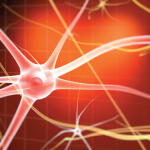(Reuters Health)—Patients with knee osteoarthritis (OA) and insomnia may be less troubled by joint pain after they get treatment to help them sleep better, a recent study suggests. Knee OA, a leading cause of pain and disability in older adults, occurs when flexible tissue at the ends of bones wears down. Although it can’t be…
Search results for: chronic pain

Mind-Body Techniques for Pain Management
CHICAGO—Delia Chiaramonte, MD, associate director of education at the Center for Integrative Medicine at the University of Maryland School of Medicine in Baltimore, presented the newest thinking on pain to a gathering of rheumatologists at the ACR’s State-of-the-Art Clinical Symposium in April. She began by explaining that pain is more than nociception. Nociception stimulates nerves to…
Mindfulness-Based Stress Reduction Only Slightly Improves Low Back Pain
(Reuters Health)—Mindfulness-based stress reduction programs (MSBR) appear to improve low back pain only slightly, and only temporarily, a review of previous research suggests. These programs combine meditation while sitting and walking, yoga, focusing attention on different parts of the body and incorporation of mindfulness/awareness into everyday life. Earlier studies found MBSR to be helpful for…
Spinal Manipulation Might Help Ease Acute Low Back Pain
(Reuters Health)—Spinal manipulation may work as well for easing lower back pain as anti-inflammatory medications, a research review concludes. Based on data from 15 previously conducted trials involving a total of 1,711 adults, the study team found that spinal manipulation achieved meaningful reductions in pain and improvements in function after six weeks of treatment. The…

Pain Management Research Sheds Light on Postsurgical Pain Sensitization, Opioid Risks, Nondrug Interventions
WASHINGTON, D.C.—Successful management of pain remains a challenge for rheumatologists. Five research abstracts presented at the 2016 ACR/ARHP Annual Meeting in a session titled Pain—Basic and Clinical Aspects offered new insights on pain sensitization, and the risks and effects of various pain therapies. Knee Pain After Surgery Can we predict which patients will have longer-term…

The ACR’s Gout Guideline Co-Author Shares Insight on Treating Pain, Ongoing Patient Care
WASHINGTON, D.C.—Despite the value of guidelines, they often “are not read,” said N. Lawrence Edwards, MD, professor of medicine specializing in rheumatology at the University of Florida, at the 2016 ACR/ARHP Annual Meeting talk titled, New & Emerging Therapies for Gout, as part of the ACR Review Course. Or if they are read, they aren’t…

Low Levels of Vitamin D3 May Increase OA Pain
In a study of patients with knee osteoarthritis (OA), researchers found that the cytokine IL-17A may play a role in the pain associated with the disease. Specifically, decreased serum levels of vitamin D3 may contribute to OA pain via the regulation of immune responses…
Music May Help Reduce Pain
(Reuters Health)—As a complement to traditional pain relief tools, such as medication, listening to music may lessen acute or chronic pain related to cancer and other conditions, according to a new review. “We have seen and observed this effect in multiple clinical settings, such as medical hospitals and hospice-care facilities,” says author Dr. Jin Hyung…

Many Patients Discontinue Tofacitinib by Year 1; Fasinumab Promising for Pain
A recent analysis found that about 10% of RA patients taking tofacitinib do not follow recommended guidelines and more than half stop treatment by one year…

Racial Bias Found in Pain Assessment, Management, Treatment Recommendations by Clinicians
In the world of evidence-based medicine, basing diagnosis and treatment decisions on belief instead of data seems anachronistic. And yet … clinicians are human, and humans live in culture, and culture is formed by beliefs, and beliefs (consciously or unconsciously) drive perception and, often, action. So a new study shining a light on racial bias…
- « Previous Page
- 1
- …
- 8
- 9
- 10
- 11
- 12
- …
- 110
- Next Page »